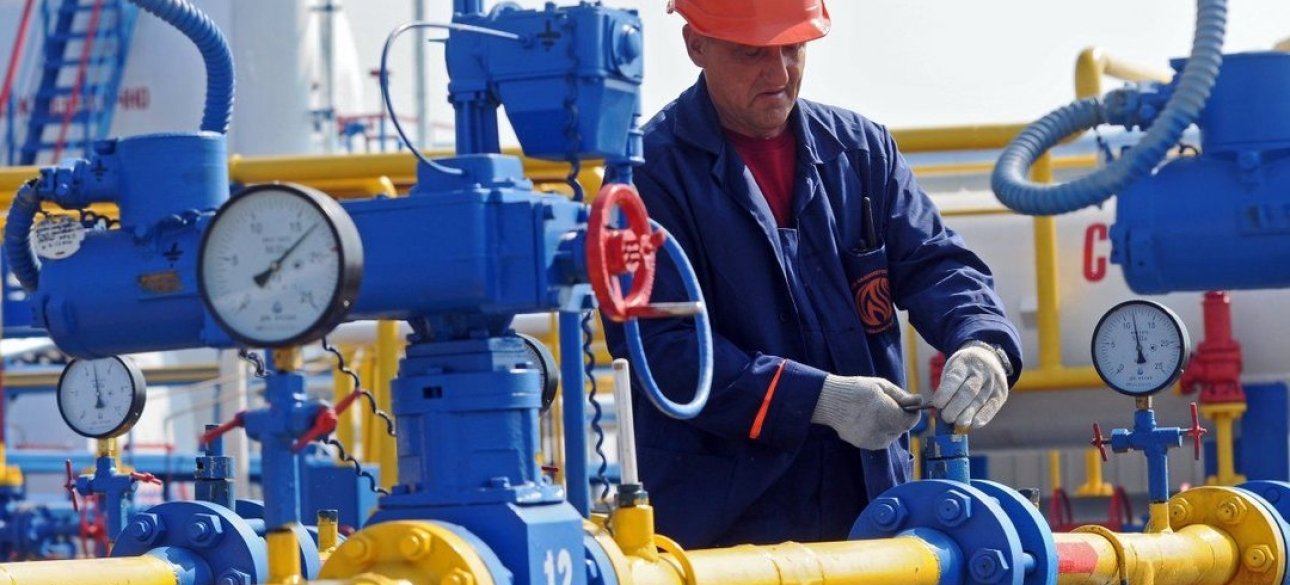
 By Eliza Popova
By Eliza Popova
The statements of our officials are already being heard that the contract will not be continued and Europe needs to prepare to live without "Russian" gas. These statements are actively supported in society in the context of the famous phrase "trading Hitler with Stalin. " Although the above comparison limits on both legs. Hitler would be pleased to buy oil from Stalin if he sold it, especially in 1944-1945.
By the way, Americans are now buying Russian nuclear fuel, without which their nuclear power will stop. The Germans buy mineral fertilizers from the Russian Federation because of the stop of their own chemical. China sells rare earth metals in the US, and this list can be continued: the system of world trade relations is much more complicated than "black and white" dichotomy. As they say, there are "shades of gray".
On the other hand, it is difficult to imagine in the current conditions negotiations to continue the transit contract. It is even more difficult to imagine a person who will sign it on our part, becoming a "enemy of the people" immediately. There is one important point here. Can our GTS work in real reverse mode for a long time and how the physical absence of gas in the "pipe" on the provision of fuel industry and housing and utilities will affect, especially in the east and south.
Today, technically, it looks like this: Russia transites its gas through our GTS. We physically pick it up in the East and use it for our needs. The emerging imbalance is closed with a "virtual reverse" with the help of "gas collider - rings" in large capsan (Slovakia). The meter is simply wound there, showing transit in the EU and import to Ukraine so that the data of the metering units on the western border come together with the gas balance in the system.
If there is no physically Russian gas in the "pipe", you will have to buy real volumes in the EU and in the reverse mode to swing it from the western border and our underground storage (there, in the west of the country) to the east. At the same time, we need to understand that there will be not much gas in the EU gas in the EU and it will be expensive (mostly LNG, and this type of gas is much more expensive than pipe).
On the other hand, if industrial enterprises and a number of cities are crossed out of our gas balance, then the available internal production opportunities will be enough and gas transit can be abandoned. In this case, there is only one problem - the maintenance of GTS, since the fall in pumping volumes will lead to the fact that revenues from internal gas transit will not block the cost mechanism of a huge system. You will have to spend up to $ 0. 5 billion a year on GTS subsidies.
Or simply dispose of part of it on scrap. There is, however, an interesting option that involves the creation on the basis of compressor stations and promallines of GTS shunting gas power plants, which will allow decentralize our UES (combined energy system - F. ) and cover electricity deficits during peak loads. But these are billions of dollars of investments, several years and again the question is where to get gas for these power plants.
With regard to transit, we still have one spare option: the creation of Eastern European gas hub in Ukraine, the functioning of which will be more economically appropriate than available transit routes.
That is, it is about the transfer of all of our GTS to the long -term concession of the consortium of European countries (Germany, the Netherlands, France), which would independently resolve with Gazprom all issues related to the purchase of natural gas and its transit, and already at the eastern points of entrance Accounting units (on the border of Ukraine and the Russian Federation). For this purpose, gas metering units should be moved from the western border of Ukraine to the Eastern.
Gas hub, created by European standards, can be a factor in the development of internal gas production. To do this, it must have a number of competitive and market advantages: input/exit prices, transit costs, gas storage facilities, storage fees, guarantees of key European countries and their systemic gas market operators. In the first stage, it could be a purely geographical hub tied to our underground gas storage.
The second is an intermediate hub, which is used as a price benchmark that sets internal gas prices in Ukraine. On the third - a mature hub with diversification of gas portfolios of Shiper (participants) and a platform for trading in derivative financial instruments (options and futures for gas). A hub is an investment magnet that will allow billions of dollars in our internal gas production.
That is, in the future of five years, we could reach a significant surplus in the gas balance of the country and painlessly abandon the transit of Russian gas, exporting to the EU excess of its resource by attracting investments in the gas production industry. The hub in this context would become a unique market "shell", which provides the investor: for this purpose, a special international law and its arbitration court must be introduced within the hub.










All rights reserved IN-Ukraine.info - 2022